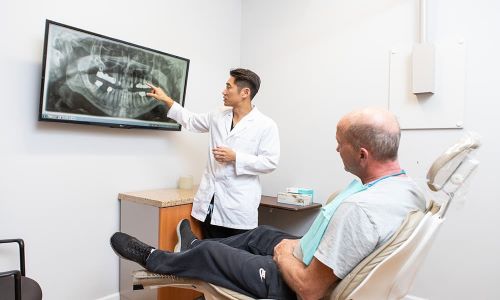Revolutionizing Dental Procedures: The Future of Precision Dentistry
 By
By
Dentistry has come a long way since its humble beginnings. From ancient civilizations using sticks to clean teeth to modern dental practices equipped with advanced technology, the field of dentistry has seen remarkable progress. One of the most significant advancements in recent years is the emergence of precision dentistry, a paradigm shift that promises to transform the way we approach dental procedures. In this blog post, we will explore what precision dentistry is, how it is changing the landscape of oral healthcare, and what the future holds for this revolutionary approach. Precision dentistry, also known as personalized or individualized dentistry, is an innovative approach that tailors dental care to the unique needs of each patient. It combines the latest advancements in technology, genetics, and patient information to provide more accurate and personalized treatments. Unlike traditional dentistry, which often takes a one-size-fits-all approach, precision dentistry recognizes that every patient is different, and their dental needs vary. Genetic Profiling: One of the foundations of precision dentistry is genetic profiling. By analyzing a patient's genetic makeup, dentists can gain valuable insights into their susceptibility to dental issues, such as tooth decay and gum disease. This allows for more proactive prevention and treatment strategies. Advanced Imaging: Precision dentistry leverages cutting-edge imaging technologies like 3D scanning, cone-beam computed tomography (CBCT), and intraoral scanners. These tools provide dentists with a comprehensive view of a patient's oral health, enabling them to detect problems at an early stage and plan precise treatments. Big Data and Artificial Intelligence: The use of big data and artificial intelligence (AI) in dentistry is on the rise. AI can analyze vast amounts of patient data to identify patterns, predict oral health risks, and suggest personalized treatment plans. This not only enhances treatment outcomes but also improves patient experiences. CAD/CAM (Computer-Aided Design and Computer-Aided Manufacturing): Cad cam plays a pivotal role in the design and creation of dental restorations, such as crowns, bridges, and dental implants. CAD technology allows dentists to create highly detailed 3D digital models of a patient's oral anatomy, which can then be used to design precise, custom-fitted restorations. CAM technology takes these digital designs and translates them into physical dental restorations using computer-controlled milling or 3D printing machines. Minimally Invasive Procedures: Precision dentistry promotes minimally invasive procedures that preserve more of the patient's natural tooth structure. This approach reduces discomfort and recovery time while maintaining the long-term health of the teeth. Personalized Treatment Plans: Instead of generic treatment recommendations, precision dentistry provides individualized treatment plans. These plans take into account a patient's genetic predispositions, lifestyle, and preferences, resulting in more effective and patient-centered care. Precision dentistry is already making waves in the field of oral healthcare, and its impact is substantial: Early Disease Detection: With advanced imaging and genetic profiling, dentists can detect dental issues in their earliest stages. This means that problems can be addressed before they escalate, leading to better outcomes and lower treatment costs. Preventive Strategies: By understanding a patient's genetic susceptibility to certain conditions, dentists can implement more targeted preventive strategies. This can include personalized oral hygiene recommendations, dietary advice, and tailored fluoride treatments. Improved Treatment Outcomes: Personalized treatment plans ensure that patients receive the most effective and appropriate care. This can lead to faster healing, reduced discomfort, and long-lasting results. Enhanced Patient Experience: Precision dentistry takes the patient's individual needs and preferences into account. This results in a more comfortable and patient-centered experience, which can alleviate dental anxiety and improve overall satisfaction. Reduced Healthcare Costs: Early detection and prevention, along with more effective treatment, can ultimately reduce the long-term costs of oral healthcare. Patients are less likely to require extensive and expensive procedures when issues are addressed proactively. The future of precision dentistry is promising, with ongoing developments that are likely to further revolutionize the field: Personalized Orthodontics: Precision dentistry is already influencing orthodontics by providing personalized treatment plans for straightening teeth. In the future, orthodontic treatments will become even more efficient and comfortable, thanks to individualized approaches. Tele-Dentistry: The integration of tele-dentistry into precision dentistry will allow patients to access dental care remotely. This will increase accessibility, especially for those in remote areas or with limited mobility. Smart Dental Products: We can expect to see an influx of smart dental products that use sensors and AI to monitor oral health in real-time. These devices will provide continuous feedback and recommendations for maintaining a healthy mouth. Regenerative Dentistry: Precision dentistry is driving advancements in regenerative treatments that aim to restore damaged teeth and gums. This holds promise for reducing the need for traditional restorative procedures like fillings and crowns. Precision Prosthodontics: Prosthodontics, the field of replacing missing teeth, will benefit from precision dentistry. Customized, natural-looking prosthetic solutions will become more accessible and durable. In conclusion, precision dentistry represents a transformative shift in the field of oral healthcare. By embracing genetic profiling, advanced imaging, AI, and personalized treatment plans, dentists can provide more effective, patient-centered care. The impact of this approach is already evident in early disease detection, improved treatment outcomes, and enhanced patient experiences. As technology continues to advance, the future of precision dentistry looks bright, with the promise of even more personalized and efficient oral healthcare solutions on the horizon. So, if you're looking to maintain a healthy, beautiful smile, the future of dentistry is personalized, precise, and promising.What is Precision Dentistry?
The Key Elements of Precision Dentistry
The Impact of Precision Dentistry on Oral Healthcare
The Future of Precision Dentistry






